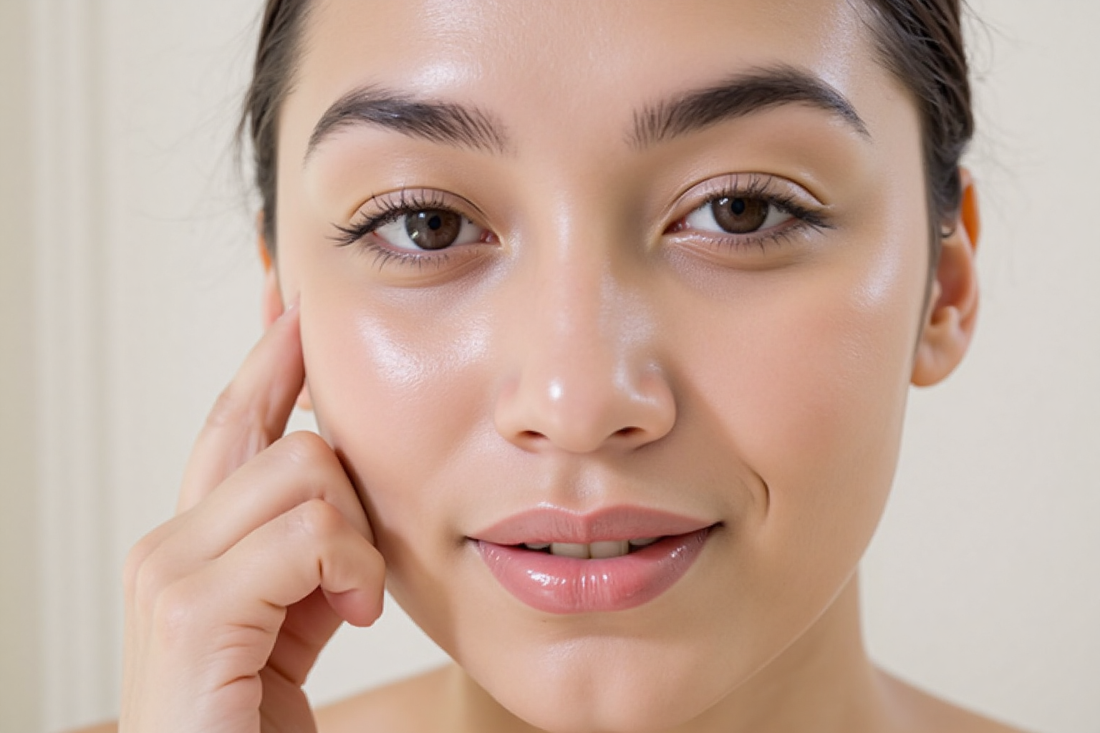
The Benefits of Hydroquinone for Treating Hyperpigmentation
Share
Hydroquinone's Advantages in the Treatment of Hyperpigmentation
People of all ages and skin types are susceptible to hyperpigmentation, a common skin condition. It happens when areas of skin produce too much melanin, making them darker than the surrounding areas. Sun exposure, hormone fluctuations, inflammation, and other skin damage can all cause this. Hydroquinone is regarded as one of the best treatments for hyperpigmentation among the range of available choices. This article will discuss the advantages of hydroquinone, its mechanism of action, and safe and efficient usage advice.
Hyperpigmentation: What is it?
Dark spots or patches that form on the skin are a sign of hyperpigmentation. Among the most prevalent kinds are:
Melasma: Usually brought on by hormonal changes, including those that occur during pregnancy or as a result of birth control drugs.
Dark spots that develop following skin inflammation, such as acne or eczema, are known as Post-Inflammatory Hyperpigmentation (PIH).
Sunspots: Also referred to as solar lentigines, these dark spots are brought on by extended exposure to the sun.
Whatever the type, hyperpigmentation can have a big impact on one's self-esteem. Thankfully, there is a viable remedy in the form of medications like hydroquinone.
Describe hydroquinone.
A topical skin-lightening medication called hydroquinone works by blocking the tyrosinase enzyme, which is essential for the synthesis of melanin, the pigment that gives skin its color. Hydroquinone helps lighten dark spots and balance out skin tone by decreasing the synthesis of melanin. There are several intensities available, often ranging from 2% (over-the-counter) to 4% or more (prescription).
Hydroquinone: How Does It Work?
By focusing on and inhibiting melanocytes—the cells that make melanin—hydroquinone lightens the skin. Here's how it operates in detail:
The enzyme tyrosinase, which is required for the formation of melanin, is inhibited by hydroquinone. The production of pigment is lowered as a result.
Fading Dark Spots: Regular hydroquinone treatment helps fade existing dark spots over time, resulting in a more even complexion.
Preventing New Hyperpigmentation: Hydroquinone helps stop the development of new dark spots by reducing the production of melanin.
Advantages of Hydroquinone in the Treatment of Hyperpigmentation
Hydroquinone's efficacy and quick results make it a popular choice for treating hyperpigmentation. Among the main advantages are:
- Clinically Proven Results: Hydroquinone is the gold standard in dermatology because to the numerous studies that have shown its effectiveness in treating different forms of hyperpigmentation.
- Works for Every Type of Skin: Although hydroquinone works well for fair skin, it is especially helpful for darker skin tones that are more prone to hyperpigmentation.
- Improves Skin Tone and Texture: Consistent application can help lighten dark spots and enhance the skin's overall tone and texture.
- Combines Well with Other Ingredients: To maximize the effects of hydroquinone, it can be taken in conjunction with other skin-lightening products such as tretinoin, azelaic acid, or vitamin C.
- Fast Results Compared to Other Treatments: Although the entire effect often takes a few months, users may see changes in as little as a few weeks.
Safe and Effective Use of Hydroquinone
The following rules will help you get the most out of hydroquinone while reducing any negative effects:
When using hydroquinone for the first time, start with a lower concentration (start at 2%), observe how your skin responds, and then go to larger concentrations.
- Apply to Clean Skin To lower the risk of photosensitivity, make sure to apply hydroquinone to dry, clean skin, preferably at night.
- Avoid Sun Exposure: Always wear a broad-spectrum sunscreen with at least SPF 30 during the day because hydroquinone might increase skin sensitivity to the sun.
- Use for Limited Periods: Continuous use of hydroquinone for up to 12 weeks is usually safe. To prevent possible adverse effects including ochronosis, a rare bluish-black discolouration, take rests in between treatments.
- Check for Irritation: Cut back on application frequency or stop using if you have redness, itching, or peeling.
Hydroquinone in Combination with Other Skincare Products
Hydroquinone can be used in conjunction with other therapies for better outcomes:
- Tretinoin: Accelerates the lightening process by improving hydroquinone absorption.
- Azelaic Acid: Lightens hyperpigmented regions and aids in reducing inflammation.
- Vitamin C: Brightens the skin and offers antioxidant effects.
Possible Adverse Reactions and Safety Measures
Despite its effectiveness, hydroquinone may cause adverse effects in certain individuals.
- Skin Irritation: People with sensitive skin may experience redness, burning, or itching.
- Ochronosis: Prolonged use may cause rare instances of blue-black skin pigmentation. Avoid using hydroquinone for long stretches of time without breaks to avoid this.
- Increased Sun Sensitivity: To prevent hyperpigmentation from getting worse, always use hydroquinone in conjunction with daily sunscreen.
Who Must Steer Clear of Hydroquinone?
Not everyone is a good candidate for hydroquinone. Before taking it, people with specific skin disorders, pregnant or nursing women, and those who are hypersensitive to the chemical should speak with a dermatologist.
Hydroquinone Substitutes for Hyperpigmentation Treatment
Other skin-brightening substances are available for those who would rather use alternatives:
Kojic Acid: This mushroom-derived substance lightens skin by blocking tyrosinase.
One type of vitamin B3 that aids in lowering melanin transport to skin cells is niacinamide.
Licorice Extract: Helps calm the skin and has natural brightening qualities.
Conclusion
A strong and efficient therapy for hyperpigmentation, hydroquinone helps to balance out skin tone and lighten dark patches. It can greatly enhance the skin's appearance when applied properly, making it a vital weapon in the battle against hyperpigmentation. To guarantee safe and efficient outcomes, it's crucial to adhere to usage instructions and seek advice from a healthcare provider, just like with any skincare treatment.
